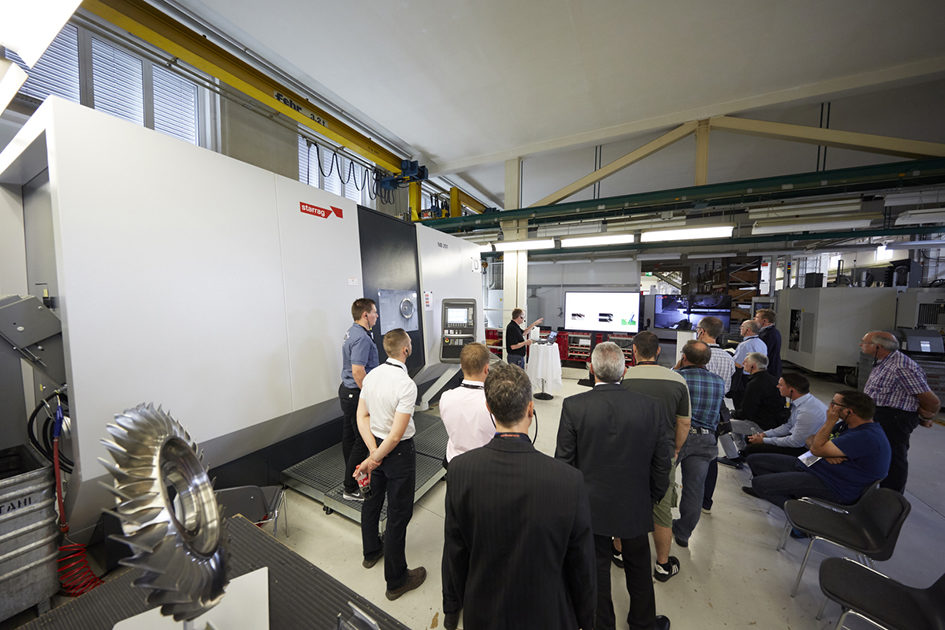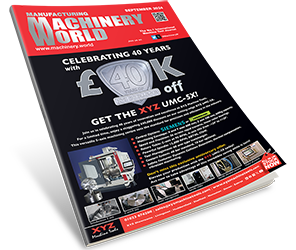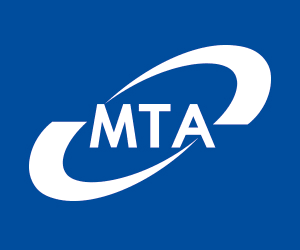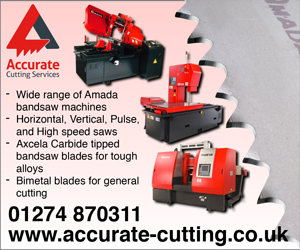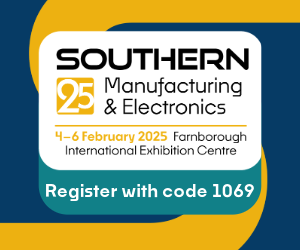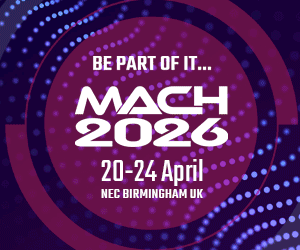Despite a continual stream of new product developments that continue to make the Starrag Group one of the world’s most revered machine tool builders, the company is also truly focused on providing its customers with integrated and end-to-end manufacturing solutions.
“Any company can supply a machine; what we are specialising in is looking at the process required then providing the appropriate automation and technology, and adopting Industry 4.0 initiatives to supply the ideal solution,” according to Starrag Managing Director, Bernhard Bringmann.
“The net result is that we are moving our focus away from ‘promoting’ individual machines and towards the development of processes and solutions to suit individual requirements.”
At the recent Turbine Technology Days held at the Starrag company’s headquarters in Switzerland – the annual focal point for world-leading machining techniques and technologies for the cost-effective and highly-efficient machining of turbine blades, blisks and casings – the company detailed its approach to providing customers with ideas for profitability, safety and growth.
“Customers want solutions to their machining problems,” says Starrag Group CEO, Walter Boersch. “And they want the problems solved quickly and efficiently. So, each individual manufacturing solution – using whatever machine from the Group portfolio – is effectively reverse-engineered from the part(s) required.
“Our quest is to discover as many opportunities as possible to add value for the customer, by combining operations and by reducing cycle times and cost per part, and by improving process reliability through process automation and integration.
“We break each of these aspects down into cost centres so that the customer can clearly see where our processes will save them money and improve their manufacturability.”
Mr Boersch continues: “As batches become smaller and users want 24/7 production, so robots and integrated data management are continuing to grow in importance. Indeed, in a number of cases we are integrating system and cell controllers with users’ SAP systems, combining and analysing then interpreting and utilising all that data as an Integrated Production System (IPS) to add value for the customers.”
IPS, he confirmed, “was relevant not only to our aerospace and energy customers, the industries that are the focus of this event, but also to Starrag’s other target industry sectors of transportation and industrial”.
Similar sentiments about focused market sectors and the increasing uptake of Industry 4.0 initiatives were echoed by Mirko Merlo, CEO of tooling expert Walter AG – Starrag’s headline partner for the event for the third year.
He stressed the importance of digitalisation in all aspects of tooling use, monitoring and management, as well as machining, in Walter’s main target markets of aerospace, energy and automotive.
With more than 200 guests from 19 different countries and as far afield as Asia and the USA, the two-day event showcased a host of turbine machining technologies, not least being a flexible machining system for forged guide vanes (35,000 vanes/year) complete with polishing cells (finishing to 0.4 Ra), integrated inspection and marking, plus tool presetters and tool shrinking stations.
Starrag’s expertise at developing turnkey FMS solutions was also highlighted by the event’s keynote speaker from Korea, HyunSoo Yoon, the director of Hanwha Techwin’s aerospace & defence group’s engineering division. With an annual turnover of $3.3 billion in 2016, of which Mr Yoon’s team contributed $1 billion through its aircraft engine work (for Pratt & Whitney and General Electric, for example), Hanwha Techwin took a giant step two years ago by investing in a Starrag FMS.
But it was a considered investment. Operating 24/7, the milling/mill-turn multi-machine system has increased production output by 50 per cent, reduced machining costs by 58 per cent, cut lead times by 59 per cent and produced an overall increase in running time of 22 per cent.
In addition to the FMS demonstration, Starrag also highlighted a host of turbine machining technology, including:
- The milling, drilling, tapping and threading on a Starrag STC 800 (60 kW, spindle speed 15,000 revs/min, torque rating 174 Nm) in a single set-up of a 700 mm by 700 by 400 mm magnesium helicopter/airplane gearbox casing, using Walter tools.
- With robot handling, a Starrag LX 051 (X, Y and Z axes strokes of 650 mm by 650 mm by 680 mm, respectively, traverse rates of 62 m/min, plus 360 deg in the 200 revs/min A axis and a 60 revs/min B axis of 360 deg continuous) was shown automatically loading/unloading titanium blades and machining from raw part to finished blade.
- Having 56 titanium blades of 30 mm long, the 524 mm diameter turbine engine blisk mounted on a Starrag NB 251 demonstrated how the machine has been specifically developed for machining the blades via a tip-entry strategy. With a B axis head that intersects with the spindle centreline, and pivots around that intersection by its tool length of 150 mm, the resulting minimal compensatory movement (reduced by 96 per cent) results in time reductions of up to 80 per cent. This equates to machining the blade edges five times faster than usual!
The NB 251 is capable of handling blisk diameters of up to 1,100 mm and with blades up to 200 mm long.
Walter tooling was also brought to the fore, with a number of workstations showcasing the benefits using examples from the company’s standard tooling range – a mind-boggling 45,000 part numbers – as well as its special-purpose designs.
 Other areas of note in the Starrag displays included TTL adaptive machining for blisk repair (rather than scrap – repairs usually equate to 60 per cent of the cost of buying new), Haimer tool shrinking and tool balancing, and details of Starrag’s Service Plus extended warranty (for up to five years) programme featuring guaranteed uptimes.
Other areas of note in the Starrag displays included TTL adaptive machining for blisk repair (rather than scrap – repairs usually equate to 60 per cent of the cost of buying new), Haimer tool shrinking and tool balancing, and details of Starrag’s Service Plus extended warranty (for up to five years) programme featuring guaranteed uptimes.
More than 200 guests from 19 countries attended Starrag’s Turbine Technology Days, where visitors divided into groups for the different workstation presentations.
“We are specialising in looking at the process required then providing the appropriate automation and technology, and adopting Industry 4.0 initiatives to supply the ideal solution,” says Starrag Managing Director, Bernhard Bringmann
Starrag Group CEO, Walter Boersch commented: “Customers want solutions to their machining problems. And they want the problems solved quickly and efficiently. So, each individual manufacturing solution is effectively reverse-engineered from the part(s) required.”


